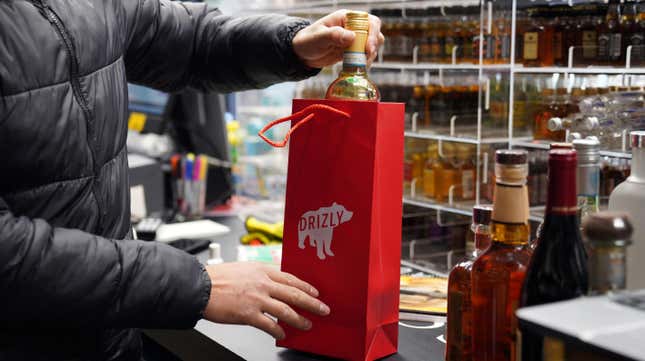
Uber is pulling the plug on Drizly.
The ride-hailing giant is closing the alcohol delivery service it bought for a billion dollars back in October 2021, Axios reported Monday (Jan. 15). Drizly operated as a standalone app and website but also found a second home within the Uber Eats app.
In a departure from Uber’s gig economy format, Drizly doesn’t hire or contract its own delivery workers. Instead, it provides backend tech to help local liquor stores make their own deliveries.
Uber’s focus will be “on our core Uber Eats strategy of helping consumers get almost anything—from food to groceries to alcohol—all on a single app,” Pierre-Dimitri Gore-Coty, Uber’s senior vice president of delivery, told Axios.
Customers will still be able to order alcohol through UberEats.
Drizly’s marred past, by the digits
$6 million: The settlement Drizly made with the Attorney General’s Office in the District of Columbia for soliciting tips that weren’t paid to drivers, and for failing to pay sales tax, between 2019 and November 2022. About $2 million of this amount was restitution for drivers
2.5 million: Customers whose data was breached because of a 2020 hack, according to the Federal Trade Commission. The vulnerabilities that led to the hack had already been flagged in 2018, but the company didn’t address it.
Company of interest: Cornershop
In May 2023, Cornershop—the Chile-based grocery delivery service Uber bought for $1.4 billion in June 2021—laid off 250 employees, amounting to 11% of its staff at the time.
“Since Uber and Cornershop joined forces, we have explored the best way to combine our people, expertise and operations. We now expect to evolve this experience further by the end of the year, when the Cornershop app and brand will be fully merged into the Uber app,” an Uber spokesperson said then. “Unfortunately, this means we had to take a hard look at roles that are no longer needed to achieve our global grocery and retail plan.”
For customers, the one-stop-UberEats-shop may be convenient but it wasn’t their top choice. The app that’s popular across Latin America and Canada was the preferred choice.
For workers, the demise of Cornershop was more dire. On Uber’s app, the base pay is worse, the order volume and frequency lower, and tips are hidden, among other things, one worker wrote in a Reddit forum.